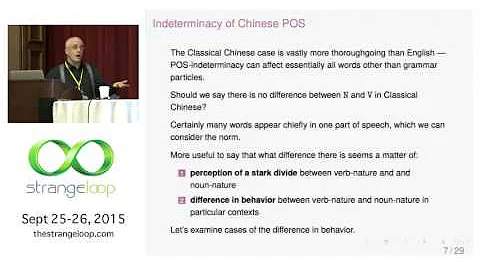Yu Ping Chen Yong
Editor's note " Water Margin " is not only a classic literary masterpiece, but also has many legal stories embellished with it, such as Yang Zhi selling knives, Wu Song killing his sister-in-law, blood splattered in the Yuanyang Tower, Song Jiang's anti-poetry, Shi Xiu killed Pei Hai, etc. These incidents reflected the people's legal awareness and yearning for judicial justice in a literary way, and also reflected the legal practices of prosecution, certification, transfer, guilt, and punishment in traditional justice. This edition Relevant articles will be published to explain it, so stay tuned.

One of the most famous cases in "Water Margin" is "Wu Song kills his sister-in-law". Pan Jinlian took advantage of Wu Song's business trip, and with the "assistance" of Wang Po, she colluded with Ximen Qing and became an adulterer. When her adultery was exposed, Pan Jinlian killed her husband Wu Da. Afterwards, Wu Song noticed that the cause of his brother's death was strange. After investigation, he determined the culprit. When the prosecution failed, he killed his sister-in-law to sacrifice his brother, and then took Wang Po and others to the county government office. Because the case involved the death penalty, the case was transferred to the Criminal Court after trial. The criminal court drafted the sentence for Wang Po: "According to Wang Po's passion, she coaxed her into adultery and instigated her to poison her husband to death. She also ordered her to drive Wu Song away and not allow sacrifices to be made to her brother, resulting in the killing and wounding of people. She instigated the man and woman to lose their lives. Human relations are consistent with the execution of Ling Chi...it will be implemented as soon as the document is issued." This sentence involves issues such as prosecution, charges, evidence, and trial transfer. Its interpretation can provide an insight into the characteristics of the judicial system since the Song and Yuan Dynasties.
| Wang Po’s crime
The verdict found that Wang Po was guilty of three crimes. Except for the second charge, "I ordered my wife to drive Wu Song away and not allow my brother to be sacrificed" written by a Yanggu County official, the other two charges are consistent with the facts.
The first one is, "To induce adultery out of passion, and to instigate this woman to poison her husband to death with drugs." According to Chapter 25: "Wang Po said: '...I have a clever plan... This plan uses something that the high official has in his home...Now that the troublemaker is seriously ill, take advantage of his embarrassment. , so that we can start. Get some arsenic from the high official’s house, and put the arsenic in it, and the dwarf will be burned completely, leaving no trace...'" This article describes. Wang Po planned the murder of Wu Da.
In fact, the death of Wuhan University was the result of Wang Po’s deliberate instigation, Ximen Qing’s preparation, and Pan Jinlian’s concrete implementation. But as far as the Song Dynasty is concerned, Wang Po is the first offender. The article "Accomplices in crimes are divided into principal accomplices and partial accomplices" in "Song Xingtong·Minglilu" stipulates: "Of all the accomplices, Zaoyi is the first, and the followers are reduced by one rank." It can be seen that among accomplices, the first offender is the first. Determination shall be based on "creative intention". In the murder case of Wu Da, when Ximen Qing and Pan Jinlian were at a loss because their adultery was exposed, Wang Po offered a plan to eliminate the traces of the murder, which was "intentional". Therefore, Wang Po should be the first offender. Looking at it from a modern perspective, Wang Po was only involved in the planning. Did it have any impact on the identification of the first offender? The "Murder and Prisoner Robbery" article in "Song Xingtong·Thieves and Robbery" stipulates: "Although the 'creator' is not capable, he is still the leader." This article clarifies the identification criteria of the "creator". In a crime, the "creator" does not participate in the execution and does not affect the identification of the first offender.
Second, "Instigating men and women to lose human ethics." Human ethics is an important ethics that maintains traditional society. Crimes that seriously violate human ethics have been included in the "Ten Serious Crimes" since Cao Wei's "New Laws". Later generations inherited this system, and after the Tang Dynasty, they were called the "Ten Evils", listed at the top of the code. The so-called "among the five punishments, the ten evils are particularly severe, damaging the famous religion, destroying the crown, and the beginning of the chapter is specially marked as a clear warning." , and "always pardon, never forgive, never wait for the right time" to show severe punishment. For example, Jin Lian's murder of Wu Da was not an ordinary murder, but the murder of her own husband. According to the old principle of "men are superior to women, and husband is the key link", Pan Jinlian should receive a more severe legal evaluation. Specifically, Pan Jinlian committed the "evil rebellion" among the "Ten Evils".
"The "Murder" Article of "Song Xingtong·Thieves and Thieves" stipulates: "Anyone who murders Zhou's relatives, maternal grandparents, husband, husband's grandparents, and parents shall be beheaded." This means murdering one's own husband is the same as murdering Zhou's elders. The same crime, once committed, will be punished by beheading. Wang Po instigated Pan Jinlian to kill her husband as an "evil traitor" and should bear the responsibility of being the first offender. For this alone, Wang Po should be severely punished.At the same time, Wang Po played the role of an accomplice in the crimes committed by Ximen Qing and Pan Jinlian, such as adultery, corpse burning, and accomplices in mourning.
The punishment of Wang Po
Wang Po "assisted" in adultery because of her greed for money and goods. She was the first offender in the murder and played an important role in subsequent crimes. She was indeed a heinous crime. The court sentenced her to "executed to death late", which was very satisfying. The problem is that although the story of Water Margin originated from the market, "Water Margin" was assembled by famous writers. "Water Margin" is clearly based on the Northern Song Dynasty of the Huizong Dynasty, and the geography, era, officials, and characters are all based on the Northern Song Dynasty. There were two types of death penalty in the criminal law of the Song Dynasty, namely hanging and beheading, excluding Ling Chi. So, why was Wang Po sentenced to Ling Chi. One possibility is that the extra-legal punishment of "Ling Chi" existed in the Song Dynasty.
In traditional society, the law comes from the king. To deal with special situations, it is not uncommon to use extrajudicial punishment. According to various historical materials, Lingchi's punishment did exist in the Song Dynasty. According to the "History of the Song Dynasty·Criminal Law Chronicles", as early as the Zhenzong Dynasty, there were cases of Lingchi being used against thieves in Shaanxi. Ma Duanlin " Document Comprehensive Examination " records the application of Lingchi during the reign of Emperor Renzong. Lingchi here was used to suppress the behavior of "killing people to sacrifice ghosts". The Southern Song Dynasty " Ming Gong Shu Sen Qing Ming Ji " also records a case of using Lingchi to suppress the sacrifice of living people. Lingchi was applied more frequently in the Song Dynasty. It started with a rebellion in the Shenzong Dynasty. According to the Song Dynasty's notes "Dongxuan Records" and "Shao Wenjianlu", Shenzong issued an edict to raise prisons, and two of the prisoners were sentenced to Lingchi. .
Lingchi appeared in judicial practice in the Song Dynasty. However, it is not difficult to see that in the Song Dynasty, Lingchi was only used to curb more special or serious crimes such as "killing people to sacrifice ghosts" and treason. It was not an extraordinary punishment and its application was not widespread. The widespread application of Lingchi, so that it became well known to ordinary people and recorded in citizen literature, should be after the Song Dynasty. According to the "History of the Yuan Dynasty·Criminal Law", "Lingchi execution" was codified in the Yuan Dynasty and included in the "Five Punishments", replacing hanging as one of the two punishments of the death penalty, and its application must be more common. By the Ming Dynasty, although Ling Chi was deleted from the "Da Ming Code", Ling Chi was very common in the "Da Gao" issued by Emperor Taizu of the Ming Dynasty. According to research, lingchi did not become common until the early Ming Dynasty to the end of the 14th century, and even became a common punishment.
According to research by scholars, the first 70 chapters of the current 120-chapter version of "Water Margin" come from the first 100 chapters of Jiajing in the Ming Dynasty. The ancestral version of the 100-chapter version of Ming Dynasty should be "Water Margin" compiled by the Southern Calligraphy Society in the late Yuan Dynasty. It can be seen that from the end of the Yuan Dynasty to the middle of the Ming Dynasty, the story of the Water Margin was transformed from loose editions to published editions, and from oral literature to written literature. During this process, there must have been many changes. The development of "Water Margin" This important process is exactly the process that Ling Chi is generally applicable to and well known to the people. The incident of Wang Po being punished by Ling Chi should be added at this time.
The metaphor of Wang Po Lingchi
The Water Margin case not only reflects the style of the judicial system since the Song Dynasty, but also shows the people's legal concepts. In "Water Margin", Wang Po is a typical representative of evil women. The extremely evil Wang Po got the punishment she deserved and was sentenced to "Lingchi". The execution of Wang Po reflects the simple justice of the people in traditional society to maintain social order. View.
Wang Po represents bad citizens who seriously disrupt the inherent etiquette and order of traditional society. Chapter 24 of "Water Margin": "Wang Po smiled and said: 'My first job is to be a matchmaker. I can also be a matchmaker. I can also hug my waist, I can hold a baby in my arms, I can talk about amorous feelings, and I can also make Ma Boliu. . '" It can be seen that Wang Po not only set up a stall to sell tea, but also had a wide range of "business", doing the same thing as a contemporary pimp. These people are profit-seeking, eloquent, and unruly. At a small level, they stir up trouble and harm their neighbors. At a serious level, they destroy the marriage system of "serving the ancestral temple and inheriting the descendants" and the etiquette and order of "respecting relatives and respecting the honorable". This "reactionary" force was difficult to be accepted by the people. Therefore, "Water Margin", which reflected the people's legal consciousness, tortured Wang Po to show punishment and containment of these people and things.
(Author’s unit: School of Politics and Law, Hunan University of Technology, Intermediate People’s Court of Yueyang City, Hunan Province)
Article source: Smart Legal Popularization Platform





![[BODW 2013 | Design for Asia] Yu Ping - DayDayNews](https://i.ytimg.com/vi/MVZpR3edAkE/hq720.jpg?sqp=-oaymwEcCNAFEJQDSFXyq4qpAw4IARUAAIhCGAFwAcABBg==&rs=AOn4CLAmj0r_heq8BzQHjI0X3tuUkOBIkw)















